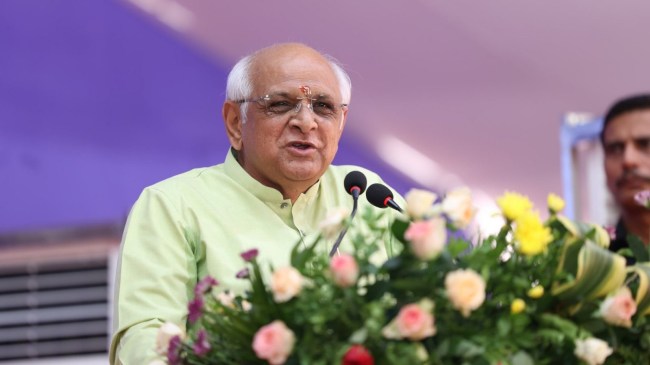Gujarat CM Bhupendra Patel approves action plan for AI implementation
The mission will focus on skilling, reskilling, and upskilling the workforce in AI and related technologies", a government release said.
 Chief Minister Bhupendra Patel Saturday approved the ‘Action Plan for Implementation of Artificial Intelligence 2025-2030’, under which one of the goal is to train over 2.5 lakh people (Source: File)
Chief Minister Bhupendra Patel Saturday approved the ‘Action Plan for Implementation of Artificial Intelligence 2025-2030’, under which one of the goal is to train over 2.5 lakh people (Source: File) Chief Minister Bhupendra Patel Saturday approved the ‘Action Plan for Implementation of Artificial Intelligence 2025-2030’, under which one of the goal is to train over 2.5 lakh people, including students, those with MSME and government officials, in AI, machine learning, and related domains, to facilitate “smart decision-making, citizen-focused schemes, efficient service delivery, and effective welfare programmes”.
The decision is based on recommendations of the 10-member task force formed to realise the aim of using AI in governance, healthcare, education, agriculture, fintech, and other critical sectors across the state, as was envisioned in a ‘chintan shibir’ in November last year.
“To ensure the structured and timely implementation of the action plan, the state will establish a dedicated AI and deep tech mission. This mission will function as a specialised institutional mechanism, leading the design, implementation, and innovation of AI strategies and emerging technologies within the state government.
Additionally, it will strengthen a robust ecosystem by fostering collaboration among startups, academic research, and industries. The mission will focus on skilling, reskilling, and upskilling the workforce in AI and related technologies”, a government release said.
The roadmap developed by the Science and Technology department focuses primarily on establishing a secure, interoperable, and regulatory-compliant data ecosystem for AI development, strengthening digital infrastructure, building capacities by training, facilitating partnerships between academia and industry and supporting start-ups engaged in deeptech through incubation, mentorship, infrastructure credits and seed funding.
The entire exercise has a five-year-timeline with 2030 as the realisation year.




